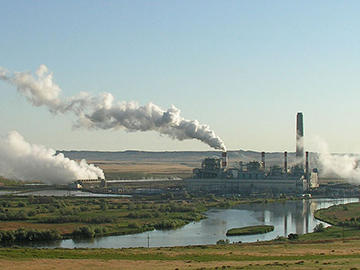Beyond Genes: Environmental Causes of Cancer and How to Reduce Your Risk
Share IT

Launch Your Dream Website with Us!
Click Here to Get in touch with Us.
Categories
Environmental Cancer Risk Factors
Examining Environmental Factors and Cancer Risk Beyond Genes
Although certain malignancies are genetically influenced, environmental variables have a major impact on the development of cancer. This blog post clarifies the several environmental exposures that raise your chance of cancer. Knowing these will help you make more educated decisions and possibly lower your risk of developing cancer.
Thank you for reading this post, don't forget to subscribe!Table of Contents

Common Environmental Carcinogens: Invisible Threats
Environmental Cancer Risk Factors
There are numerous possible carcinogens (agents that cause cancer) in our surroundings. Observe the following significant exposures:
- Tobacco Smoke: The single biggest environmental risk factor for cancer is smoking tobacco products. It contains a variety of carcinogens that harm lung tissue and increase the risk of lung cancer as well as other malignancies like those of the bladder, head, and neck.
- Sun Exposure: One of the main risk factors for skin cancer is prolonged exposure to ultraviolet (UV) radiation from the sun. Limit your time spent in the sun, put on protective gear, and use sunscreen with an SPF of 30 or higher to practise sun safety.
- Air Pollution: Prolonged exposure to air pollution, especially in urban settings, is associated with a higher risk of lung cancer due to the presence of hazardous contaminants.
- Occupational Exposures: Working with some types of pesticides, benzene, and asbestos can expose one to certain cancers. Employees in these sectors must to get recommended health checks and take the necessary safety precautions.
- Radiation Exposure: An increased risk of cancer can result from prolonged exposure to ionising radiation, which includes radiation from CT scans, X-rays, and environmental sources. Medical practitioners carefully consider the risks and advantages of radiation therapy before making decisions about it.
- Chemicals in the Environment and Consumer Products: Herbicides, some consumer products, and even some chemicals used in manufacturing processes may contain carcinogens. Consider probable exposures and, if at all possible, select safer options.
Environmental Risk and Lifestyle Decisions
Environmental Cancer Risk Factors
Your exposure to environmental carcinogens might be influenced by certain lifestyle choices.
- Diet: A diet heavy in red meat, processed foods, and bad fats may put a person at risk for developing several types of cancer. On the other hand, a diet high in fruits, vegetables, and whole grains may provide some level of protection.
- Alcohol Use: Drinking too much alcohol can raise your risk of breast, liver, throat, and mouth cancers.
Environmental Cancer Risk Factors
It’s crucial to remember that genetic predisposition and environmental exposures frequently interact to affect cancer risk.
Reducing Your Exposure to Environmental Hazards
Environmental Cancer Risk Factors
The good news is that you have the power to lower the amount of environmental carcinogens you are exposed to:
- Use sunscreen: cover up with protective clothes, and seek out shade to practise sun safety.
- Be Smoke-Free: Give up smoking and keep yourself away from other people’s smoke.
- Keep Your Diet Healthy: Consume a diet high in fruits, vegetables, and whole grains that is well-balanced.
- Moderate Alcohol Consumption: Try to cut back on your alcohol consumption or skip it entirely.
- Limit Your Outdoor: Time on Days with High Air Pollution and Think About Installing Air Purifiers in Your Home to Lower Your Exposure to Air Pollution.
- Occupational Safety: Use specified safety equipment and adhere to safety regulations if there is a chance that you may be exposed to carcinogens at work.
- Be Aware of Environmental Toxins: Select environmentally friendly cleaning supplies and keep an eye out for any possible chemical pollutants in your surroundings.
Using Knowledge to Take Action
Environmental Cancer Risk Factors
Knowing the environmental risk factors will help you make wise decisions for a healthy way of living. Recall:
- Speak with your physician: Together with your physician, go over your worries and risk factors to develop a customised prevention and early detection plan.
- Remain Up to Date: Stay informed on health concerns related to the environment and the dangers that may arise from particular exposures.
Environmental Cancer Risk Factors
Exposure to the environment carries some risk, but you shouldn’t live in constant terror. You have the ability to take charge of your health and drastically lower your risk by being proactive and making well-informed decisions.

Launch Your Dream Website with Us!
Click Here to Get in touch with Us.





























































Recent Comments